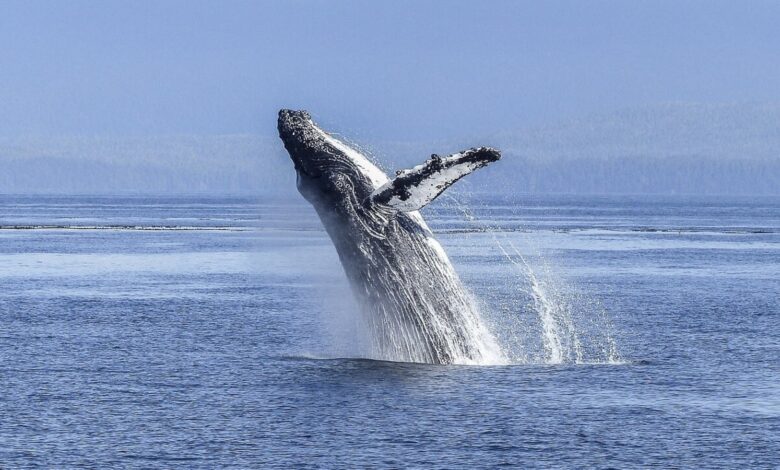Humpback whale swims over 13,000 km setting a new record in quest for a mate. Details inside | Trending

In an astonishing feat, a male humpback whale has swum over 13,046 kilometres (8,106 miles) from South America to Africa, setting a new record for the longest whale migration ever documented. This unprecedented journey, which was meticulously tracked researchers, has shed new light on the migratory habits of these majestic creatures and their incredible adaptability. A male humpback whale set a record migrating 13,046 km from South America to Africa. (Pixabay) (Also read: Rare whale found washed up on New Zealand beach, unveiling vital clues about species) Unveiling the whale’s epic journeyThe remarkable journey was detailed in a study published in Royal Society Open Science and marks the first time an adult male humpback whale has been observed travelling between the Pacific and Indian Oceans. Researchers used the Happy Whale platform, co-founded marine biolog Ted Cheeseman, to follow the whale’s progress. Initially sighted near Colombia in 2013, the whale was spotted again in the same region a few years later. However, in 2022, it made an unexpected appearance in the Indian Ocean near Zanzibar, off Africa’s east coast. Nearly double the usual danceTypical humpback whale migrations span around 4,971 miles (8,000 km) one way, making this whale’s journey almost double the usual dance. The extraordinary migration has raised questions about why this particular whale took such an unconventional route. Cheeseman, a co-author of the study, speculated that factors such as competition for mates in Colombia and possible food shortages could have prompted the whale to seek new territory in Africa. “These animals are dinct individuals, and they’ll do surprising things,” Cheeseman said. “These oceans are very much connected spaces, and whales travel beyond borders.” A leap between breeding groundsWhat makes this migration even more significant is that it crossed typical breeding grounds. Humpback whales typically return to the same breeding areas every year, but this male whale moved between two separate breeding populations in different oceans. The move also raises concerns about how he will be received the population in the Indian Ocean, which has been impacted the horical effects of 20th-century whaling. The future of whale migrationsThe Happy Whale platform now holds data on around 109,000 whales, and while the current location of this remarkable whale is unknown, researchers continue to monitor the platform for new sightings. As the study suggests, continued unusual migrations may lead to greater connections between humpback populations, potentially sharing behaviours and creating a more connected global community. (Also read: Man on solo ocean row surrounded dozens of whales for hours in surreal encounter) Ari Friedlaender, a professor of ocean sciences at the University of California, Santa Cruz, added, “There has to be some movement where you get some (animal) explorers that decide, for whatever reason, to follow a different path.”







